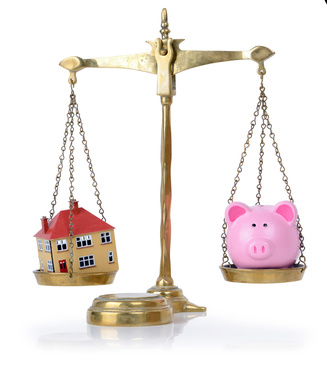Buying Or Selling An "As Is" Property
Posted by Larry Tollen on Tuesday, November 24th, 2015 at 6:05pm.
 Many real estate contracts these days contain “as is” clauses. The term “as is” is a signal that the seller makes no warranty as to the condition of the property and intends to make no repairs to the property prior to or after closing. It also often means that the seller will give no credits against the price for needed repairs. Foreclosure sales are almost always “as is” sales, since the banks that own the homes don’t want to put any more money into the properties. While I generally don’t recommend foreclosure deals, as-is property can be a good deal at the right price point if the buyer has sufficient cash reserves and/or the ability to handle any needed repairs.
Many real estate contracts these days contain “as is” clauses. The term “as is” is a signal that the seller makes no warranty as to the condition of the property and intends to make no repairs to the property prior to or after closing. It also often means that the seller will give no credits against the price for needed repairs. Foreclosure sales are almost always “as is” sales, since the banks that own the homes don’t want to put any more money into the properties. While I generally don’t recommend foreclosure deals, as-is property can be a good deal at the right price point if the buyer has sufficient cash reserves and/or the ability to handle any needed repairs.
Pros and Cons of Selling “As Is”
Why would you want to sell your house “as is”? You might not want to spend time or money making repairs to a house you will be leaving. Or, you may prefer to use your funds to fix up your new home instead of repairing the home you are trying to sell. In most cases, it comes down to money. If your cash is locked up in the equity of the home, selling as-is may be the only practical option. The trade-off, of course, is that your home will sell for less and may be a deterrent to otherwise ideal buyers. Other buyers may make low-ball offers in anticipation of unexpected repairs. Over our many years working as full time real estate Brokers both Andrew and I have noted that more often than not Sellers end up conceding more money in terms of final sale price when going this route than it would end up costing if they were able to make needed repairs. This is to be expected as the Seller is asking the Buyer to assume the additional risk inherent in buying “As Is”
Pros and Cons of Buying “As Is”
If you are a buyer, should you avoid “as is” properties? Not necessarily. You just need to proceed with some caution. A primary advantage to buyers of “as is” properties is that the price will often be lower to compensate for the time you will spend. There may also be a little less competition for a particular “as is” house because some buyers may be scared off by the “as is” condition. If you have the available cash to perform some repairs after you buy the house, you can use this as leverage to negotiate a better deal. On the down side, you assume the risk of taking on more repair costs than you may have bargained for. Having renovated countless homes over the years I can attest to the fact that unsuspected damage or complicating factors can be uncovered once work has been started that could not be seen until the repair work was underway.
Assessing the Repair Costs
The key to buying or selling as-is: the ability to accurately project the total cost of repair. This boils down to working with experienced and reputable professionals. Not all home inspectors are created equal. If you are buying a home in “as is” condition, the need for a quality inspector is even more critical. Also, inspections may not reveal everything. For example, there are many things that inspectors can’t check because they can’t see behind walls. There is no substitute for experience here. My partner, Andrew Palumbo, and I both have logged extensive hours on construction sites. We know how to assess what a home is truly worth on the market and can help determine what repair costs are likely going to look like. In addition we can often caution clients on unknown expenses they may encounter on certain repair jobs. If the home is priced right, an “as is” sale can be beneficial to both the seller and the buyer. The buyer gets the property at a significant discount in exchange for assuming extra risk.
If you own a fixer-upper that you can’t afford to fix but want to sell, or if you are considering buying one and need a buyer’s agent, send us a message or give us a call today. 919-659-5173
 My NC Homes is your #1 source for all of your real estate needs in Cary, Chapel Hill, and Durham areas. Get in touch with us online or by phone at 919-659-5173 today. We have over 25 years of experience by helping people in the Research Triangle reach their real estate goals.
My NC Homes is your #1 source for all of your real estate needs in Cary, Chapel Hill, and Durham areas. Get in touch with us online or by phone at 919-659-5173 today. We have over 25 years of experience by helping people in the Research Triangle reach their real estate goals.
